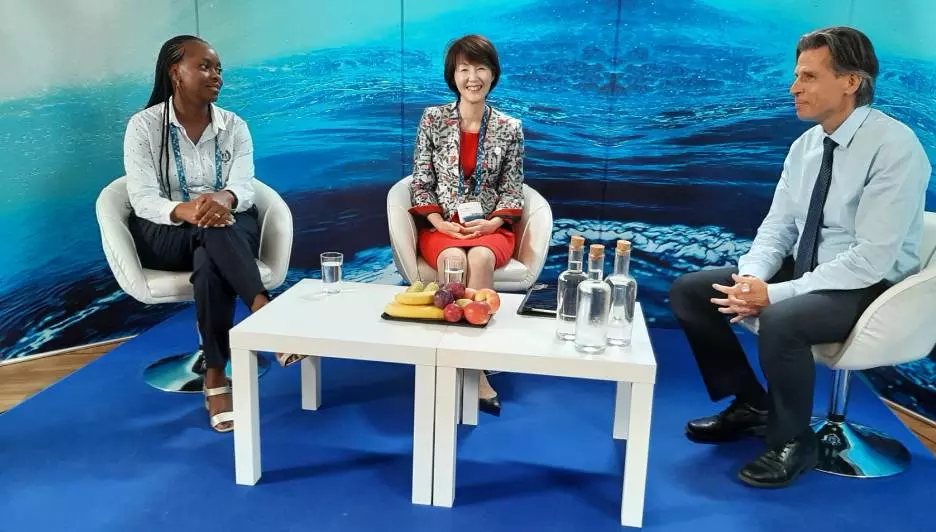Scientists, UN experts and high-level public and private officials gathered in Stockholm during World Water Week to explore new ways of managing water and to address its major challenges. This was an opportunity for Veolia to highlight two public-private partnerships (PPPs) to meet the specific needs of territories, one in Japan and the other in Namibia.

One PPP to address ageing infrastructure, budget constraints, and labour shortages in Japan
The value of water is a headache for Japanese municipalities because of the declining population and the need to reduce the carbon footprint of water and wastewater services. Public authorities now allow private companies to provide their expertise in infrastructure maintenance and delivering water and wastewater services on a long-term basis. In this context, Veolia works closely with municipalities and their local communities to best meet local needs, as in the case of the city of Hamamatsu and Miyagi Prefecture.
Yumiko Noda, Chairman and Representative Director of Veolia Japan, explains :
The PPP responds to the main challenges facing Japan today. Such an in-depth dialogue with municipalities enables us to understand their needs and to suggest the best solutions, combining our technical, digital, and operational expertise.

Focus on Miyagi in Japan
As a member of a consortium with nine local partners, including the Japanese leader Metawater, Veolia manages the operation and upgrading of drinking water, wastewater, and industrial water facilities in Miyagi Prefecture, located in the north-east part of the archipelago, in the Tohoku Region on the Pacific Ocean.
This 20-year Public-Private Partnership is the first concession contract to include drinking water service in Japan. Veolia and its partners provide Miyagi Prefecture with services corresponding to 2 drinking water projects for 25 municipalities (2 million people), 4 wastewater projects for 21 municipalities and 3 industrial water projects for 70 companies.
One PPP to reuse wastewater for drinking water in Namibia
The reuse of wastewater is rapidly developing in many sectors: water supply and distribution, agriculture, industry, mining operations. In Namibia, wastewater reuse has been at the heart of the government's water security strategy for 50 years. The reuse of wastewater from Windhoek, the capital city, is enabling communities affected by water scarcity to live and develop. The PPPs implemented in Namibia are based on careful interfacing of local and international expertise, and illustrate that there is an alternative path to achieving national and local sustainable development goals.
Berenice Ndaitwah, Process and Research Manager at Wingoc (a subsidiary of Veolia), in Namibia:
I am proud to be a part of Wingoc, a global pioneer in wastewater reuse for drinking water supply.

Focus on Windhoek in Namibia
In Windhoek, each drop of water counts! That's the motto of the capital city of Namibia, one of the world's driest countries, which is crossed by both the Kalahari and Namib deserts. In Namibia, just 1% of rainwater manages to penetrate the soil. Subjected to chronic water stress, the city decided in 1968 to reuse its domestic wastewater for human consumption. In 2002, a new plant was built and entrusted to Wingoc. It provides more than one third of the drinking water required for the consumption needs of 400,000 people, i.e., 21,000 m3 a day.
For more information
- World Water Week 2022: Save the date and join our experts to discover and understand the value of water
- Acting and committing to ecological transformation
- World Water Week 2022 took place in Stockholm from 23 August to 1 September


